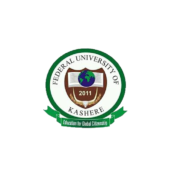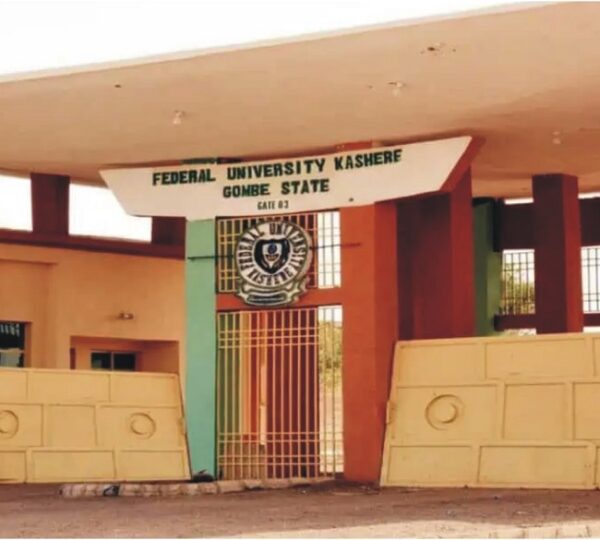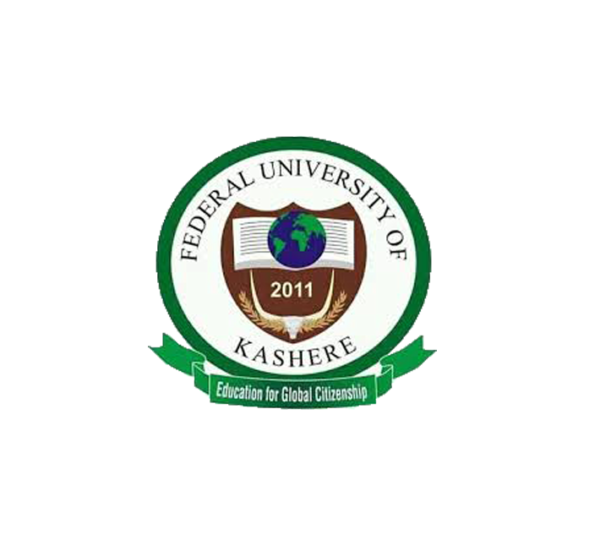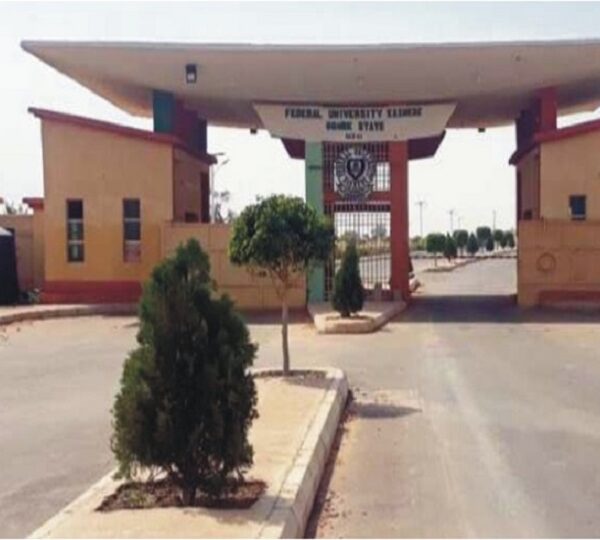- Education
- Kashere 771103, Gombe, Nigeria

FEDERAL UNIVERSITY KASHERE, GOMBE
The landscape of education in Nigeria is never changing; and this change, which is reflected in the establishment of more and more institutions of learning, is driven by demand and the demand for education is driven by a number of factors. These include: the growing population of Nigeria with a large percentage being children and young adults of schooling age; the shortage of adequate spaces for the teeming population of applicants annually, dubbed the lack of access; and the increasing importance of education as a definer of social and economic status of people. The demands at the tertiary level, especially university education, is more acute as more and more graduating students from all secondary schools and old graduates who have not secured admission annually compete for the limited space available in Nigerian universities.
The crisis of access influenced the decision of the Federal Government to establish nine new universities to be funded by it. The issue of equity, in terms of the distribution of federal resources also influenced the decision of the Federal Government to increase the number of its universities. This is buttressed by the need to give equal opportunity to all Nigerians, irrespective of their State of origin, the opportunity to acquire qualitative university education within a reasonable distance from their locale.
However, the overarching rationale for the establishment of new universities lies not with expanding access, but with the understanding and appreciation of the Federal Government of the roles universities play in the growth and development of human societies. Looking into the 21st century with hope and aspiring to become one of the leading global economies at the dawn of the century, Nigeria and its Government took the initiative to establish new universities for the rapid socio-economic transformation of the country. It is the aspiration and expectation of the Federal Government that these universities shall become centres of excellence and wheels for driving the transformational agenda of the government.
Historical Background
Federal University, Kashere (FUK) was one of the new federal universities establish by the Federal Government of Nigeria in 2010 to increase access and ensure equity among all the States of the federation and the Federal Capital Territory in terms of the presence of federal tertiary institutions. FUK aspires to be a world class institution of higher learning which shall attract and train brilliant and talented young people from diverse backgrounds in Gombe State, Nigeria and beyond to become the leaders of tomorrow.
To this end, a memorandum was presented by the then Minster of State, Education, Olorogun Kenneth O. Gbagi to the Federal Executive Council, at its 39th Meeting held on Wednesday, 10th November, 2010, requesting for the establishment of 44 additional tertiary institutions nationwide, to address the twin challenges of access and equitable educational development of States in the Federation. Council, in its wisdom, however, approved the establishment of twelve new universities on the basis of equity and access. Nine universities were approved for immediate take-off under Phase I of this initiative.
Sequel to above approval, a twelve –member Committee, under the Chairmanship of Prof. Julius A. Okojie, Executive Secretary, National Universities Commission, was inaugurated by the Honourable Minister of State, Education, Olorogun Kenneth O. Gbagi on Thursday, 11th November, 2010, to among other assignments, develop the modalities for the location and take-off of these universities. The report of the Technical Committee was presented to the Honourable Minister on Monday, 15th November, 2010, in compliance with the ministerial deadline for the submission of the report.
For the effective take-off of the nine universities drawn from all the geo-political zones, the Honourable Minister of Education, Pro. Ruqqayat Ahmed Rufa’I, OON accompanied by the Director (Tertiary Education), Federal Ministry of Education and the Executive Secretaries of NUC and ETF, visited the identified States. With the support of the State Governments, permanent as well as take-off sites were identified. These were subsequently approved by the Federal Executive Council. Council also approved the sum of 1.5 billion for each university to be sourced from the Education Trust Fund (ETF). FUK was one the nine universities approved for take-off under Phase I of that initiative.
Mr. President, His Excellency Dr. Goodluck Ebele Jonathan, GCFR, in his capacity as Visitor to the nine newly established federal universities, appointed Vice –Chancellors and Registrars for the universities on 7th February, 2011. The appointees were informed of their appointments at a media press briefing by the Honourable Minister of Education, in the conference room of the Federal Ministry of Education Headquarters, Abuja, on Wednesday, 9th February, 2011. The Vice Chancellor, Professor Mohammed Kabiru Farouk, and the Registrar, Dr. Abubakar Aliyu Bafeto, of FUK were formally introduced to the Executive Governor of Gombe State on 1st March, 2011.
Beyond these, the university has established a warm and mutually beneficial relationship with the Gombe State Government and has already been benefiting from the assistance of the State Government; while in turn the university has agreed to establish a pre-degree programme to cater for the needs of the indigenes of the State.
This Academic Brief has been produced by the University Management, with input from consultants in Nigerian universities, as a requirement of the NUC for all new universities in Nigeria; but more importantly to ensure proper planning to guide the operations of the university from inception to maturity. The Academic Brief covers the first ten years of the development of the university from the 2011/12 session to the 2020/21 session as well as its structure at its ultimate growth. The consultants assisted in preparing the Academic Brief were:
- Alhassan Mohammed Gani, Department of Biological Sciences, Abubakar Tafawa Balewa University, Bauchi;
- Umaru A. Pate, Department of Mass Communication, University of Maiduguri, Maiduguri;
- Isa H. Chiroma, Department of Public Law, Faculty of Law, University of Maiduguri, Maiduguri;
- Mahmoud M. Lawal, Department of Political Science, Bayero University, Kano;
- Mohammed Sani Abdulkadir, Department of History, Bayero University, Kano;
- Mustapha Ahmed Isa, Department of English, Bayero University, Kano;
- Anthony Obi, Department of Mechanical, Engineering, Ahmadu Bello University, Zaria;
- Ibrahim Musa Umar, Department of Chemistry, Gombe State University, Gombe;
- Olaniyi, Department of Economics, University of Abuja, Gwagwalada; and
- Ahmed M. Falaki, Department of Agronomy, Ahmadu Bello University, Zaria.
Vision Statement/Mission Statement
Federal University of Kashere seeks ‘to become a world-renowned centre of learning where students are prepared with the knowledge, skills, and disposition they need in order to serve their Community, State, Nation, and the world through excellence in Teaching, Research, and Service’.
The Mission of the Federal University of Kashere is to serve as a world-renowned Centre of learning through excellence in teaching, research and scholarly/artistic activities, and service to the community, state, nation, and the world.
Objectives
The law establishing the university has defined the following objectives for it. The objectives of the university are:
- To encourage the advancement of learning and to hold out to all persons without distinction of race, creed, sex or political conviction the opportunity of acquiring higher and liberal education;
- To provide courses of instruction and other facilities for the pursuit of learning in all its branches, and to make those facilities available on proper terms to such persons as are equipped to benefit from them;
- To encourage and promote scholarship and conduct research in restricted fields of learning and human endeavour;
- To relate its activities to the social, cultural and economic needs of the people of Nigeria; and
Undertake any other activity appropriate for a university of the higher standard.
Philosophy
FUK is an institution of higher learning that is committed to excellence and integrity in the pursuit of knowledge within an environment that respects diversity, the worth of the individual, academic freedom, a commitment to service learning, and a shared responsibility for applying knowledge and skills to address the interrelated issues that affect the local, national and global communities.
In this regard, FUK is committed to the following core values:
Truth and integrity in the pursuit, generation, dissemination, and application of knowledge;
Freedom of thought and expression;
Respect for diversity and the dignity of the individual;
Responsibility as stewards of the environment and citizens of the world;
Excellence in intellectual, personal, and operational endeavours;
High standards of morals and ethics; and efficient resource management based on the need for cost-effectiveness.
Faculties/Schools
The university is recently running 6 faculties and 2 Schools which are listed below
• Faculty of Agriculture
• Faculty of Education
• Faculty of Humanities
• Faculty of Sciences
• Faculty of Management Sciences
• Faculty of Social Sciences
• School of Postgraduate Studies
• School of Premilinary and General Studies
• College of Medical Sciences (Proposed)
Courses
The following are the courses offered in the Federal University of Kashere.
- Accountancy/Accounting
- Agricultural Science and Education
- Applied Geophysics
- Arabic Studies
- Biochemistry
- Biology
- Business Administration
- Chemistry
- Christian Religious Studies
- Computer Science
- Economics
- Economics and Development Studies
- Education and Arabic
- Education and Biology
- Criminology and Security Studies
- Education and Chemistry
- Education and Computer Science
- Entrepreneurship
- Education and Economics
- Education and English Language
- Education Guidance and Counselling
- Education and Geography
- Education and Hausa
- History and Diplomatic Studies
- Education and History
- Education and Integrated Science
- International Relations
- Education and Mathematics
- Education and Physics
- English Language
- Education and Political Science
- Educational Administration and Planning
- Geography
- Hausa
- Political Science
- International Relations
- Library and Information Science
- Mass Communication
- Statistics
- Microbiology
- Plant Science
- Zoology
- Agricultural Economy and Extension
- Agronomy
- Animal Science
- Soil Science
- Public Administration
- Procurement Management
- Islamic Studies
- Psychology
Business Amenities
- Car Parking
- Funding: Federal
Tags
Contact Information
Opening Hours
Contact Business
Contact Business
Additional Information
Additional info








